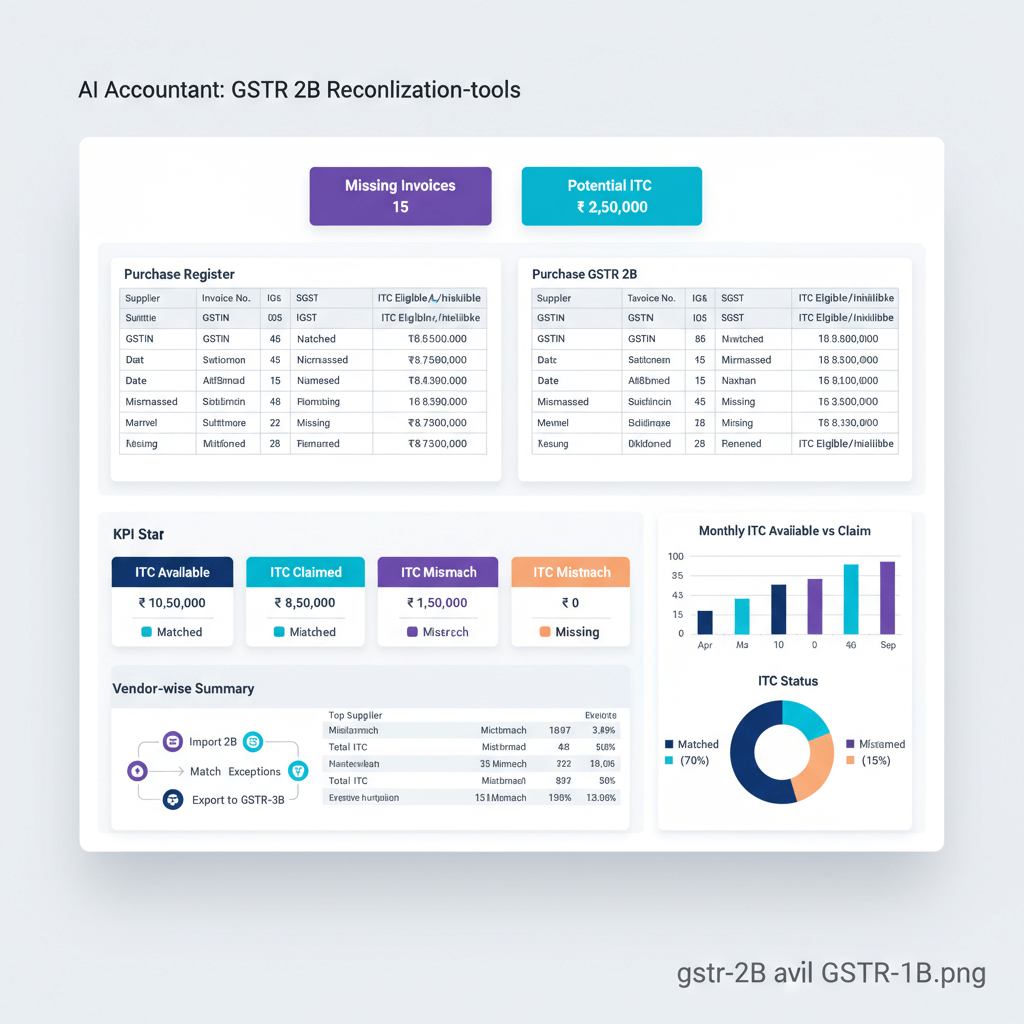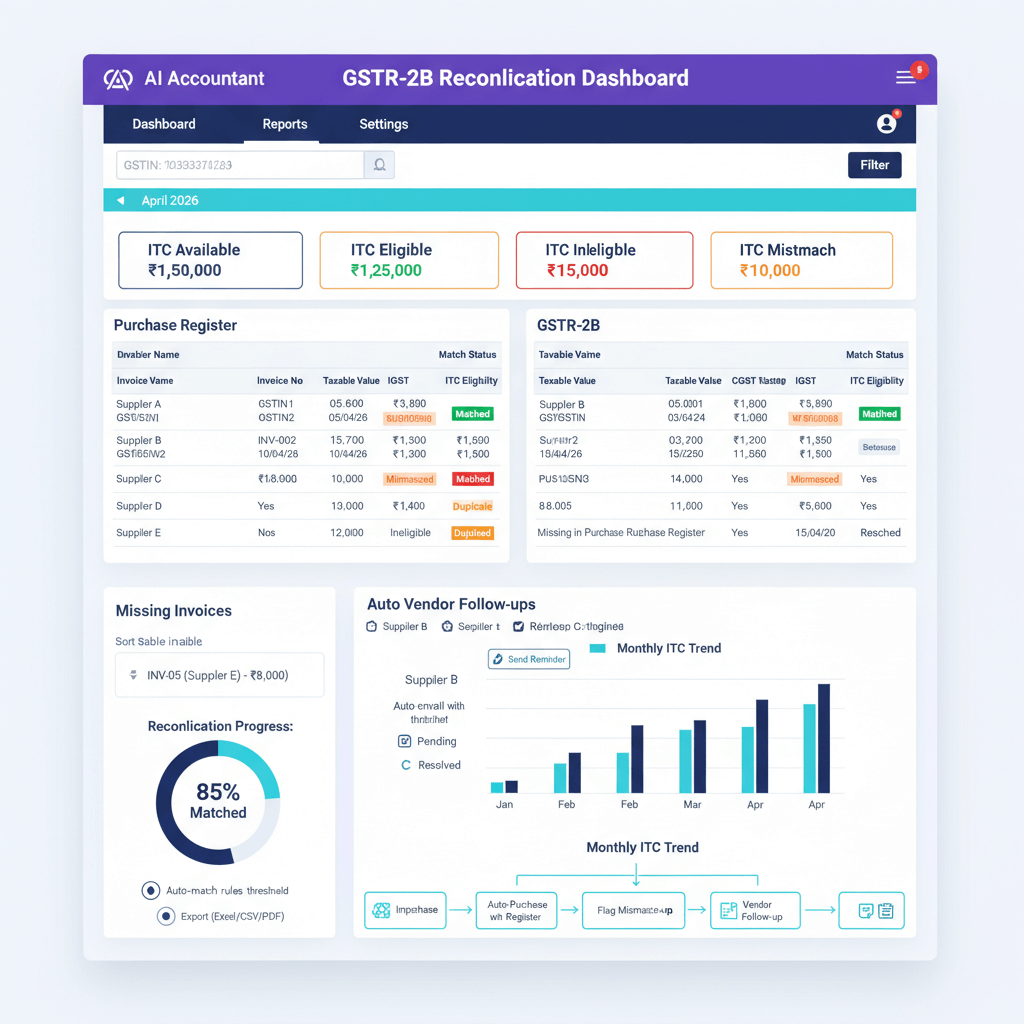Of course every new technology meets resistance. The biological explanation is that innovation is an unknown that triggers our lizard brain to perceive danger. This is perhaps counterintuitive, but our gut reaction to change is always to cling to the status quo, even when change is good for our industry or our company in the long run.
Indian Accountants' History With Technological Innovation
In the 1990s, when software like Tally came along, there was real fear that human accountants would become obsolete. Newspaper headlines suggested Tally might automate away bookkeeping roles. In the 2000s, Excel entered accounting teams across India and once again there was panic: “What’ll happen with junior accountants who manually enter data into ledgers? And by the 2010s, tools such as Zoho Books and Freshbooks, were offering cloud-based GST-compliant bookkeeping, accountants were in fear of becoming irrelevant.
But history proved otherwise. Tally turned out to be a boon in Indian CA firms, not a menace. In fact the number of CAs has grown every time a new technological revolution has come in because every technological revolution in an industry frees up time spent allowing the CAs to rise up to a more strategic and advisory role.
.png)
How an Indian CA Automated Tally with AI Accounting Software
CA Deepak R. from Bengaluru (name changed for discretion) had built his practice the traditional way, long hours, spreadsheet audits, and junior staff manually keying in ledgers. But over time, it became clear that he was losing time, not gaining trust.
Then came the turning point. One of his SME clients, a mid-sized importer, was growing rapidly. Bank statement reconciliation became a weekly headache. “We had two interns copying entries from PDFs to Excel. GST invoices had to be matched manually. It was chaos,” he recalls.
On a peer’s recommendation, Deepak tried AI Accountant. The transformation was near-instant. Bank statements uploaded in bulk. Entries auto-categorized. Tally populated. What took days now took under an hour. But the real surprise? What the client noticed.
“They came back saying, ‘Hey, did you just upgrade Tally?’ They thought we had changed the entire system because for the first time, they could get real-time cash flow views, instantly spot duplicate payments, and download reconciled data on demand.”
Tally hadn’t changed. But AI had elevated it. “It became our cockpit,” Deepak says. “Clients were impressed. And internally, I could finally spend my time providing strategic insight, not fixing errors.”
The efficiency gains were just the beginning. In a few months, Deepak stopped hiring entry-level staff for repetitive work. Instead, he hired someone to help build advisory reports, something he had always wanted to do but never had time for.
“The best part wasn’t the time saved,” he says. “It was the headspace I got back. I could think again.”
Will AI Replace Human Accountants in India?
Neither humans nor AI alone are perfect for day to day accounting work.
Specific to finance, humans will always win where emotional intelligence, interpretation, and strategic thinking are required. Human accountants are invaluable, for example, when a client’s finances demand nuanced judgment, such as deciphering ambiguous regulations or communicating bad financial news.
AI, however, excels at processing massive amounts of structured data. It can reconcile thousands of transactions in minutes, identify duplicate entries and sort financial data into dashboards, all with an alacrity and precision that no human being can match.
The truth is that they’re not going to supplant each other. It’s about teaming our human strengths in the areas of interpretation and communication and strategy with the strengths of AI in the areas of handling repetitive, data-heavy tasks. Collectively, they provide a more powerful, accurate, and responsive accounting workflow.
The takeaway? Humans still excel at judgment, relationship and oversight. AI performs best at speed, scale, and accuracy.
What Can AI Accounting Software Not Do?
AI has limitations that no tool can erase:
It can’t interpret nuanced regulatory exceptions. It lacks ethical discretion. It blindly follows patterns, even when a human would clearly see that something’s off.
Deepak puts it simply: “The AI flags a mismatch. I decide whether it matters.”
This is why the future of accounting is not AI vs. human. It’s AI with human oversight. CAs still validate AI outputs, intervene on complex tax interpretations, and lead audits with experience that no algorithm can replicate.
Future of Indian Firms Using AI Tools for Accountants
Let’s be real. The accountants who don't adapt will be left behind. And just as an accountant today who doesn’t know Excel is unemployable, AI will soon be the same.
Are accounting jobs going to be extinguished by AI? Yes, the ones that are simply transactional. But it will also produce a new generation of strategic finance professionals who are tech-savvy and advisory-oriented.
The firms that don’t adapt will bleed clients. The newer companies that deliver automated reconciliation, with real-time dashboards and proactive alerts will take market share.
Final Thought
This isn’t the end of human accountants.
It’s the rise of a new kind of accountant: empowered, efficient, and future-ready.
So the question isn’t: “Will AI replace accountants?”
The real question is:
“Which accountants will lead the AI-powered future of finance in India?”
Let’s build that future — together.
-01%201.svg)





